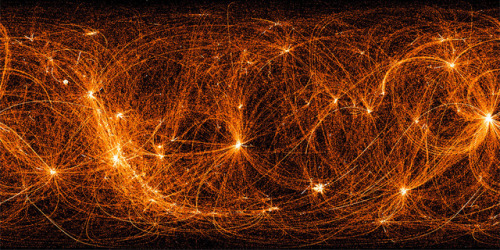
2019 June 1
NICER at Night
Image Credit: NASA, NICER
Explanation: A payload on board the International Space Station, the Neutron star Interior Composition Explorer (NICER) twists and turns to track cosmic sources of X-rays as the station orbits planet Earth every 93 minutes. During orbit nighttime, its X-ray detectors remain on. So as NICER slews from target to target bright arcs and loops are traced across this all-sky map made from 22 months of NICER data. The arcs tend to converge on prominent bright spots, pulsars in the X-ray sky that NICER regularly targets and monitors. The pulsars are spinning neutron stars that emit clock-like pulses of X-rays. Their timing is so precise it can be used for navigation, determining spacecraft speed and position. This NICER X-ray, all-sky, map is composed in coordinates with the celestial equator horizontally across the center.
∞ Source: apod.nasa.gov/apod/ap190601.html




Комментариев нет:
Отправить комментарий